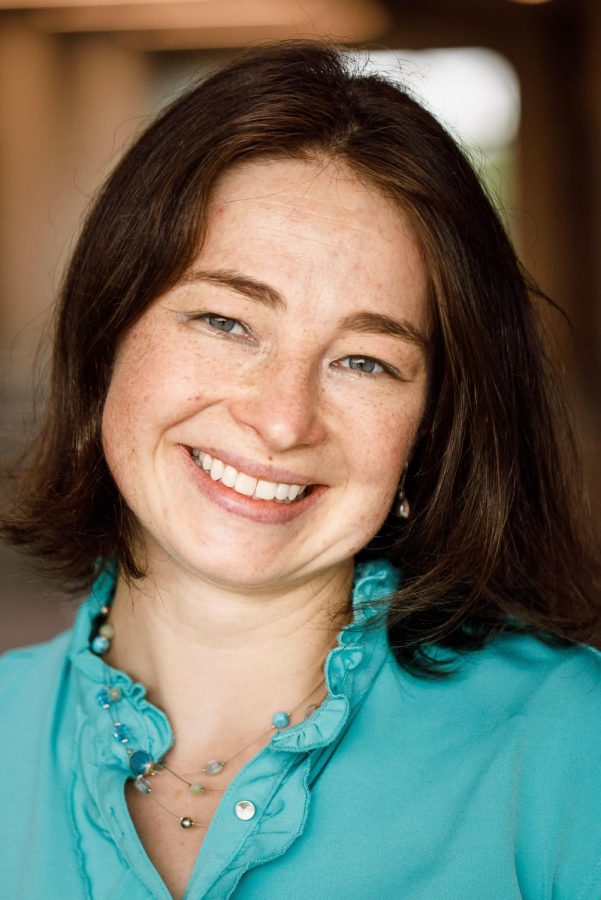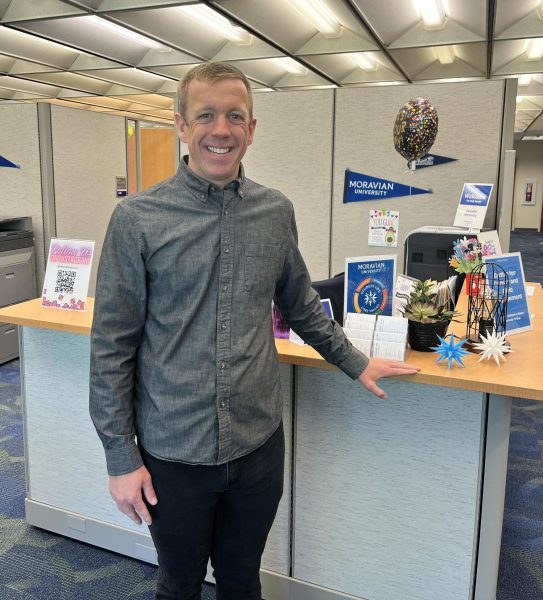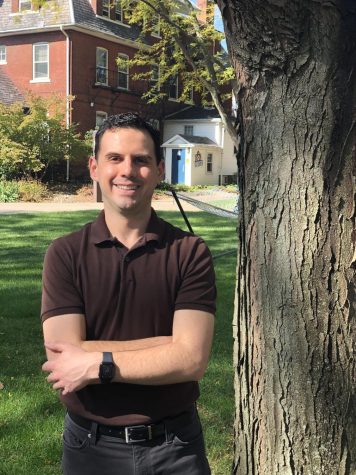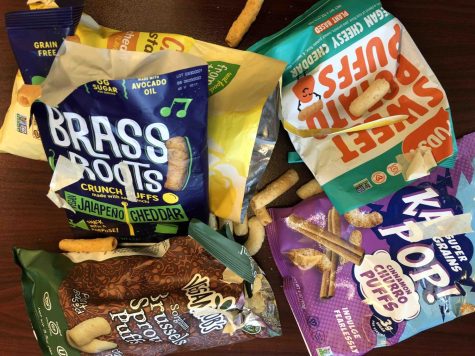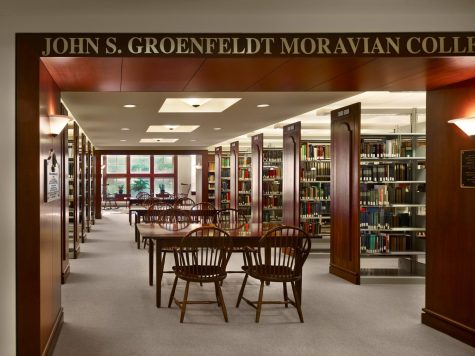Professor Spotlight: Anastasia Thévenin
Dr. Anastasia Thévenin is an assistant professor in the Biological Sciences department. She received her B.S. in biomedical science (with an English minor) from the University of Lynchburg, and a Ph.D. in biochemistry from the University of Delaware. Thévenin then did postdoctoral research work, first at Yale University and then at Lehigh University.
What inspired you to go into your field of study?
I love trying to understand how proteins work because they are the molecules in our cells that do most of the jobs. As an undergraduate, I tried to study how proteins signal within cells by responding to signals coming from the outside. Usually, all these molecules are going to send messages all the way to the nucleus of the cell and then tell it to make more stuff or make less stuff. These protein-protein interactions and signaling have been really intriguing to me. This is so relevant to human disease; when things go awry it is because proteins are messed up in some way. That’s true of any human disease.
What research are you currently working on?
We are looking to see how we can use good proteins called tumor suppressors to stop the bad proteins that are called oncogenes. Oncogenes cause cells to overgrow, and tumor suppressors cause cells to grow just right. It is kind of a tug of war between the two kinds of proteins. We study a tumor suppressor, a good protein, called Connexin 43, which interacts with the bad protein called Src and it keeps it in check. We have been trying to understand on the molecular level how the good guy attacks the bad guy and prevents cancer from happening.
What do you think is the most recent important development in your field of study?
I think the biggest development has been our ability to understand that cancer comes from within us. It’s mutations within our DNA that then cause changes in proteins within our cells. When they don’t do their job appropriately anymore cancer happens. I think our understanding of what causes cancer is the biggest breakthrough in cancer biology because now we know what to look for. We know that it’s the mistakes in DNA that we should be looking for. If you know what is messed up you know what to treat. That is where targeted therapies of cancer come from.
What job would you have if you couldn’t be a professor, regardless of salary and job outcome? Why?
I would be an art historian. I loved art history in undergrad. I think I would be an art historian who is doing art restoration. So a little bit of a science aspect to it but anything related to art history. I adore going to museums and applying the knowledge from art history to what I am seeing.
What do you know now that you wished you knew when you were in college?
I wish I had stressed less. When I was an undergrad, I took vertebrate physiology, which was a very stressful class, probably one of the hardest ones I’d ever taken. Our professor told us, “You need to just relax and apply the Five Year Rule, which means that you need to ask yourself: ‘Is any of this going to matter [to you] five years from now?’ And the answer is, No, it’s not going to matter five years down the line.’’ At the time I didn’t agree with him. Now I am seeing my students experiencing the same stress I felt and I try to calm them down.
What is your biggest student pet peeve?
I think it’s when I spend an entire semester telling my students, “I am here to help you. Don’t wait until the last minute to seek my help,” and they still wait until the last minute to seek my help. They come during the last week of the semester and say, “Is there something I can do for extra credit?” when they have been struggling the entire time. It’s me offering the help and them not taking it.
What should students expect from your classes? What is the secret to succeeding in your classes?
I don’t like to give TED Talks in my classes. I like to engage my students. I think students who jump in and let themselves relax and enjoy themselves can be really successful. Also, seeking my support when I’m offering it. You have to listen to what I know is going to be a difficulty, that has been a difficulty for students in the past, so follow that advice. If students listen, they do pretty well.
What was the last streaming show that you binge-watched or the last good book that you read?
The last show I watched was “Severance,” on Apple TV. My husband and I watched the entire season in two nights. It is about the concept of work-life balance. This guy decides that he wants to have a separate life at work and a separate life at home. They do a brain surgery so that when he comes to work he completely forgets his life outside of work, and when he leaves work he completely forgets work. All sorts of issues come to surface. For the book, I actually spent the last two or three months reading all of the “Harry Potter” books because my older son was into it. We read the books together and loved them!
What is something interesting about you that most people don’t know?
I used to be deathly afraid of flying even though I had to fly a lot because my husband is from France and we travel there quite often. Years ago I actually had to get therapy for flying because my fear was so bad. The thing that fixed the problem, which is really bizarre, was when we had kids and started flying with them. I was too busy taking care of them to be afraid during flights. Now I absolutely love flying and my kids are older and don’t require so much attention. So I went from straight-up panic attacks to flying post-COVID and loving every moment.
You mentioned that you have been focusing your research on cancer cells, what pushed you to research this disease in particular?
The challenge of it. We are probably never going to come up with a cure for cancer because cancer is so many different diseases and it’s really dependent on the patient. Cancer in one patient is very different from cancer in another patient. We as humans are so complicated.


